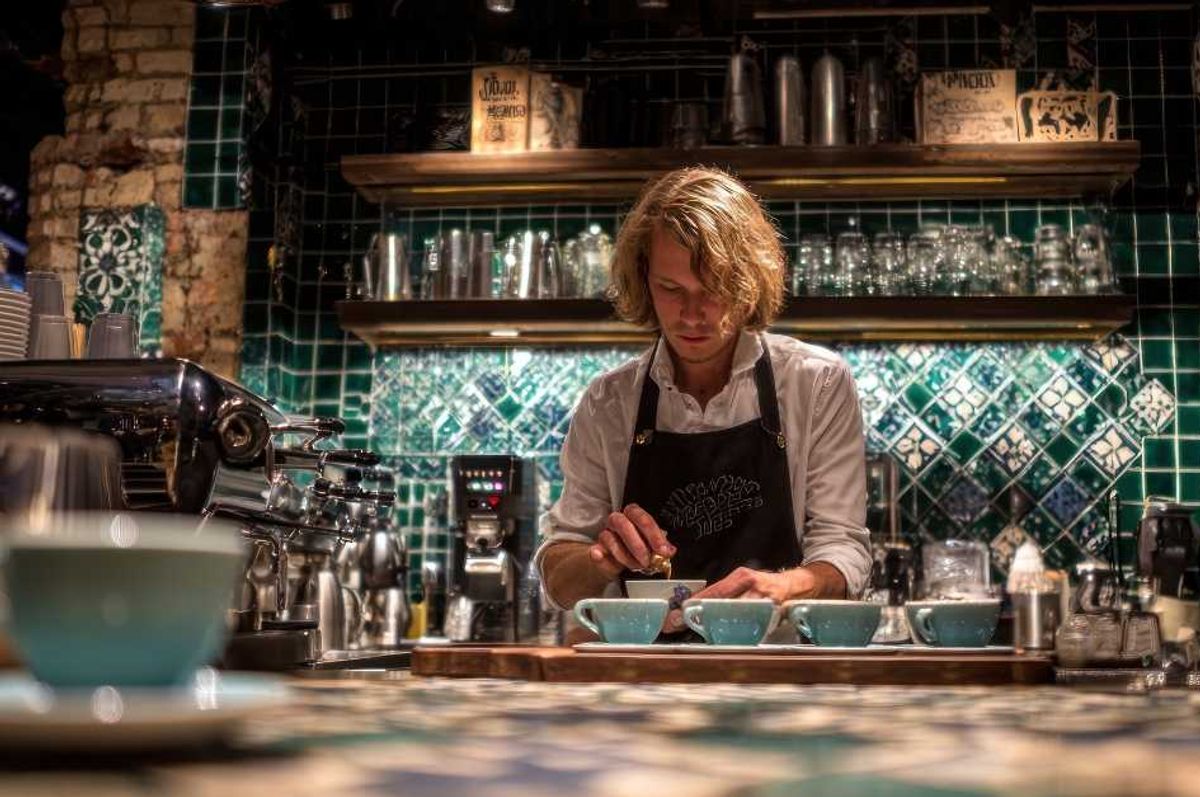People donate over $280,000 to Portland coffee shop giving free breakfast to SNAP recipients
"Portland, please come eat. The world has you."
Sometimes a coffee shop is more than a coffee shop.
What happens when a volunteer-run, non-profit coffee shop offers free breakfast to people whose food assistance is about to be halted due to a government shutdown and political stalemate? The world shows up to help in a big way.
Heretic Coffee is a unique coffee shop and roasting company in southeast Portland, Oregon. The community-oriented shop aims to be a counter to the often-exploitative coffee industry, which means it pays its suppliers the best possible wage and provides top-notch brewing training to the volunteer baristas who help the shop run. And now that generosity of spirit has spread far beyond Portland after owner Josh White put out an offer to provide breakfast to anyone who is losing their SNAP benefits when the U.S. government halts benefits on November 1.
On October 26th, 2025, the coffee shop wrote on Instagram, "Starting November 1st: If you are losing your SNAP benefits and are unsure how to feed your family, then breakfast is on us. No proof needed. No questions asked. Just ask us for the 'Snap breakfast' and our baristas will know what to do, and will take care of you. Come in each day until your SNAP is back."
People who saw the post began asking if there was a place they could donate to help out with the generous offer. Heretic set up a donation link and put it in shop's Instagram bio, and soon the donations started pouring in. Within two days, over 2,000 people had donated, raising more than $72,000. In another two days, the total had climbed to over $184,000. As of October 30, that total had risen to over $280,000.
To say White was surprised is an understatement. "I legitimately thought we would get a couple hundred dollars,” he told The Oregonian.
What's perhaps most remarkable is the global nature of the donations. People from Australia to West Africa have sent breakfast funds, and as of October 30, more than 10,000 people had donated from around the world. One donation was just $1.17—all the person had to donate.
“This is a now a global movement of humanity making sure Americans are fed, White wrote on the shop's Instagram page. “Literally, thank you to the world for feeding people. I’ve said it before, and I’ll say it again: when the system fails us, it’s on us to take care of each other.”
White has partnered with Equitable Giving Circle to ensure that every dollar of the flood of donations is put to the best use to help individuals and families in the Portland area get the aid they need.
People from Portland and elsewhere shared praise for the initiative and people's response to it:
"That’s an average donation of $26 each - let’s please remember this next time we are tempted to think 'but I’m just one person, what can I do?."
"When you eat primarily rice, beans, tuna, pasta, and are able to go into a regular coffee shop for a fresh meal — so much dignity is restored in that little act 🥹🥹🥹🥹🥹🥹."
"This is incredible!!! I love how people are showing up and giving what they can!! What a beautiful way to bring some healing to our divided nation."
"The way this rolling tide of generosity and love has made every day this week infinitely more tolerable ❤️🩹 None of us should have been driven to the point that this needed to be the answer but I am so damn grateful that humanity has shown up in this incredible way at this moment when my faith in all that’s good was beaten and dragged and shrinking every day."
""Restoring faith in humanity when we need it. Thank you!"
Heretic says that their first step with the flood of funds is to feed people with their SNAP breakfast initiative. "This is in effect right now and will be until SNAP is reinstated or until we go broke," the shop shared on Instagram. The next step is to use the attention "to bring awareness to the mutual aid orgs & communities here in Portland who have been doing this for years, and using your financial support to feed as many people as possible."
"Again, from the bottom of my heart: thank you," White wrote. "Thank you to everyone who has waited for their latte, to the grandmother in Ireland who emailed me and said she’d cook me dinner if I were ever in her city, and to the thousands of you who have given your money for this cause.
"Portland, please come eat. The world has you."
Indeed it does. Find more information about the SNAP breakfast initiative on Heretic Coffee's Instagram page.

